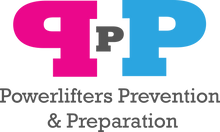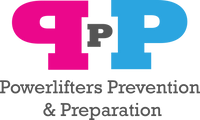
How To ‘Enjoy The Process’ In Powerlifting
A comp is coming up and you want to hit a 20kg Personal Best on all your lifts. Training is heavy, 4 hours at a time. Your body is banged up session to session and you’re barely able to recover before your sessions next week as you’re lifting at your limits. You’re counting macros as best as you can and forcing yourself to get enough rest. You need to hit these numbers because that’s what you told all of your friends you wanted to hit and you’ve set it in your mind already that it’s going to happen.
You go to your comp and you miss it by 5kg. You’re disheartened and you start thinking about all the things you did to achieve your goal but still didn’t get it. Sounds rough! You hear all around you ‘trust the process’ and ‘enjoy the process’ but you don’t know what that means. You will always want more in reality and wanting something too much can cause you to cut corners. Programmed for an RPE 7 that looks like an RPE 9, you want to train with more weight because you want to compete with more weight… this is correct, until a point. That point is where you actually start to progress slower because form is getting worse and worse as you’re tunnel focused on the weight you’re lifting and how to lift more. Did you ever think of it like this: What if I focused on lifting a weight I’ve lifted before, but make it easier to lift than last time. I’m talking about efficiency. Breaking something down and seeing how you can improve it. That’s with training, nutrition, recovery, prehab, rehab. The works.
Enjoying the process to me is all about learning something from a previous experience. It could be a new cue that you’re implementing in a squat. Finding what works for you, acknowledging it and doing more of it to help you overall in your training. Don’t get so caught up in the weight that you miss these vital improvements in efficiency that came from doing something slightly differently. It might mean trying something different to break through a plateau, rather than just doing the same thing but ‘harder’ or ‘faster’ or with more weight. The best way of putting it is to be observant, find out how your body reacts to the way you train, as opposed to doing the things that have been known to work in the past only. Sure, push in the direction that has been known to work well, then tailor it to your individual self. Everyone reacts differently to different stimuli. Find what works best for you and go with it- don’t get caught in the ‘more means more’ mentality.
When talking in terms of plateaus- Sometimes it’s mental, sometimes it’s physical. Once again look from the outside in and observe what is happening- are you getting too caught up with a weight? Is the ego getting the better of you? Would it be better to rework and come back after nailing your technique or working on a weakness within that lift? It could be something to do with your nutrition, sleep, mobility. You will be unable to pick up what the actual issue is if your mind is clouded by ‘lift more’ mentality. Yes progressive overload is required- but this doesn’t just come from progressive overload of weight on the bar. It could come from more reps of a certain weight. Increased efficiency at a load that was previously harder, your recovery could be faster. Powerlifting training is more than just putting more weight on the bar- there’s a lot of other aspects you can focus on to improve your numbers at a comp, other aspects may even prove to drive greater personal bests on the platform at your next comp.
Your score for powerlifting is defined as your total at a comp. When training to get that bigger total it’s another story. Efficiency, recovery, nutrition and mobility all work to drive progressive overload with your capabilities on comp day. Try and take the observant approach- think about all the other aspects involved in the ‘ process’ and you’ll find that its not only more enjoyable but your results are actually better.

